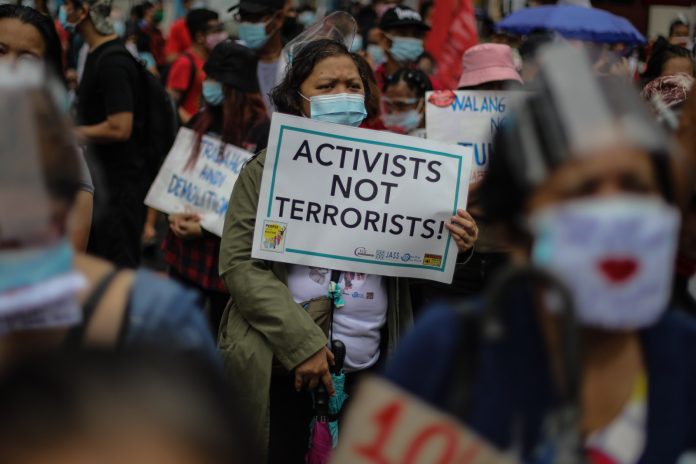The missionaries in the Philippines who educate farmers, fishermen, and other people on their rights still face the threat of red-tagging, a Vatican News report said.
Just recently, Aileen Manipol Villarosa, a non-governmental organization worker affiliated with Rural Missionaries of the Philippines (RMP), was arrested and charged with financing terrorism.
Villarosa, 41, is facing 55 counts of Terrorism Financing.
Red-tagging is a practice by authorities in the Philippines that associates people and groups critical of the government with communists.
In August 2022, RMP was red-tagged when 16 people associated with it were charged with financing terrorism. The authorities alleged that RMP was transferring money to the NPA.
In November 2022, a priest of the United Church of Christ in the Philippines and more than 70 others were arrested on charges of supporting terrorism. But they denied the accusation.
Members of the Catholic Church, the Iglesia Filipina Independiente, and the United Methodist Church in the Philippines were also charged with financing terrorism.
Red-tagging started during the term of former President Rodrigo Duterte.
Legislation introduced in recent years has facilitated “red-tagging.”
The Terrorism Financing Prevention and Suppression Act of 2012, and the Anti-Terrorism Act of 2020 support the anti-insurgency strategy of red-tagging. These two laws were used to freeze the assets of RMP.
The National Council of Churches in the Philippines (NCCP) has condemned an increasingly militarized counterinsurgency campaign.
“Those who defend the land, often the ancestral property of indigenous peoples, from the development of mines and dams, are confronted with the Filipino military, who use their power to protect the interests of multinational companies,” the NCCP said. “Peasants who strive to ensure a just, decent, and sustainable livelihood for their families and communities are often imprisoned or killed, while lawyers who try to represent them are attacked or arrested.”
In 2022, Filipino actresses Angel Locsin and Liza Soberano were victimized by red-tagging.
Authorities linked Locsin to the New People’s Army (NPA), the armed wing of the Communist Party of the Philippines, because she participated in humanitarian efforts and expressed her opinions.
Soberano was red-tagged for advocating for women’s rights and supporting advocacy that supports women’s interests.
When former national security adviser Clarita Carlos was an incoming national security chief, she wanted a stop to red-tagging, saying the practice was unproductive.









